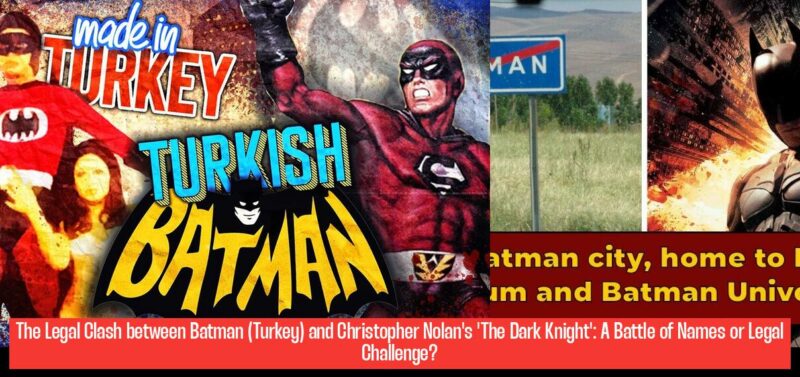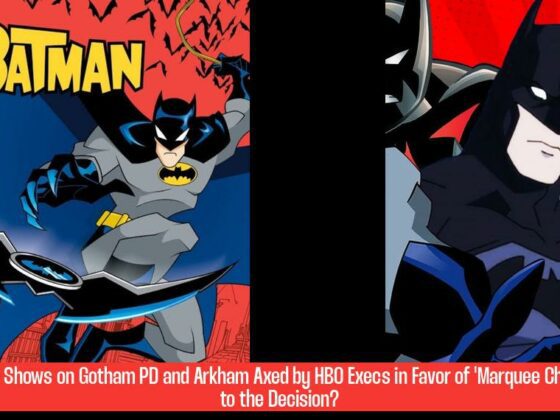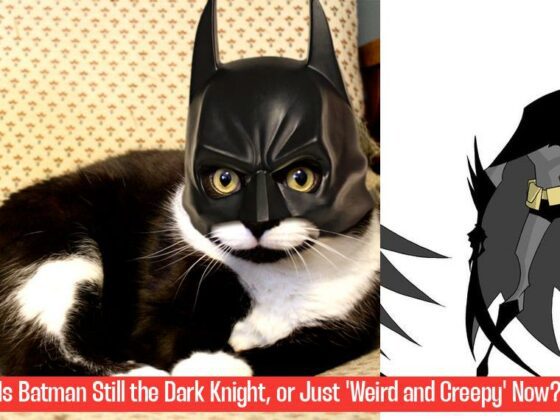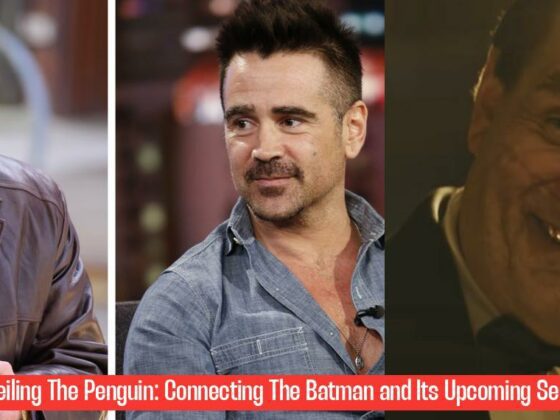Batman vs. Batman: The Turkish City’s Legal Fight Against the Dark Knight
The release of “The Dark Knight” in 2008 was a monumental event in the world of cinema. This superhero masterpiece, directed by Christopher Nolan, captivated audiences with its dark and gritty storyline, stunning visuals, and unforgettable performances by Christian Bale and the late Heath Ledger.
However, far from the glamorous world of Hollywood, an unlikely legal battle was brewing in a city with a name that mirrored the film’s iconic protagonist: Batman, Turkey. The mayor of this oil-producing city in southeastern Turkey, sharing the same name as the Caped Crusader, took offense to the film’s use of the name and decided to take legal action against Christopher Nolan and Warner Bros.
The mayor argued that “The Dark Knight” had unjustly appropriated the name “Batman” without seeking permission from the Turkish city. He believed that the film’s success had inadvertently benefited his city, attracting tourists and media attention, and felt that he was entitled to a share of the profits.
The mayor’s claim was met with skepticism and amusement by many, who viewed it as a publicity stunt or a misguided attempt to capitalize on the film’s popularity. Despite the widespread criticism, the mayor remained resolute in his pursuit of justice, declaring that he would fight for his city’s rights.
The City of Batman’s Case: A Legal Misadventure or a Bold Claim?
The Turkish city of Batman, located in the southeastern region of Turkey, found itself at the center of an unexpected legal battle. The mayor, driven by a perceived infringement on his city’s name, took the unprecedented step of suing Christopher Nolan and Warner Bros. for using the name “Batman” in their film “The Dark Knight.”
The mayor’s argument rested on the premise that the film’s use of the name “Batman” had unfairly profited from the city’s identity, attracting tourists and media attention. He argued that the city, which shares the name with the superhero, had a legitimate claim to a share of the film’s profits.
While the mayor’s claim garnered attention for its uniqueness, it lacked legal merit. “The Dark Knight” was a fictional story set in Gotham City, a fictional metropolis in the United States, not the Turkish city of Batman. The film’s creators had no intention of associating their work with the actual city, and the use of the name “Batman” was simply a creative choice inspired by the comic book character.
The lawsuit was ultimately unsuccessful, as the court ruled in favor of Warner Bros. and Christopher Nolan. The city of Batman’s attempt to capitalize on the film’s popularity backfired, leaving it with a reputation for legal misadventures and a reminder of the fine line between creative expression and intellectual property rights.
The Real Gotham: Chicago and London in the Dark Knight’s Shadow
While the city of Batman’s legal battle may have been a misfire, the film “The Dark Knight” did leave its mark on several real-world locations. Chicago and its suburbs served as the primary filming locations for the film, transforming the city into a gritty and realistic representation of Gotham City.
Chicago’s distinctive architecture, particularly its towering skyscrapers and industrial areas, provided the perfect backdrop for the film’s dark and brooding atmosphere. Locations throughout the city, including the iconic Wrigley Field, the Merchandise Mart, and the Chicago River, were transformed into recognizable landmarks in Gotham City.
But it wasn’t just Chicago that played a role in bringing Gotham to life. London, with its historical architecture and vibrant cityscape, also served as a crucial filming location for “The Dark Knight.” Several key scenes, including the climactic chase sequence, were filmed in London, showcasing the city’s adaptability as a cinematic backdrop.
The film’s production team meticulously blended these real-world locations with their fictional counterparts, blurring the lines between reality and fantasy. The result was a visually stunning and immersive cinematic experience, showcasing the beauty and grit of these two iconic cities.
Christopher Nolan’s Vision: From “Batman Begins” to “The Dark Knight”
The success of “The Dark Knight” was a testament to Christopher Nolan’s vision and directorial prowess. However, the acclaimed filmmaker’s journey to the helm of this iconic superhero franchise wasn’t without its hesitations.
Nolan, known for his dark and complex storytelling style, had already achieved critical acclaim with films like “Memento” and “Insomnia.” He initially expressed reluctance to take on a superhero film, fearing that it would limit his creative freedom.
However, Nolan was ultimately drawn to the complex character of Batman, recognizing the depth and potential for exploration within the superhero’s world. He was intrigued by the character’s duality, his internal struggles, and his relentless pursuit of justice.
Nolan’s vision for “The Dark Knight” was to delve deeper into the psychological complexities of Batman, exploring the darkness that lurked beneath his iconic mask. He wanted to portray a more realistic and grounded version of the superhero, showcasing the human cost of his crusade against crime.
His commitment to this vision, coupled with his masterful storytelling and innovative filmmaking techniques, resulted in a film that transcended the superhero genre, becoming a cultural phenomenon and a masterpiece of modern cinema.
The Dark Knight’s Legacy: A Lasting Impact on Superhero Cinema
“The Dark Knight” did more than simply entertain audiences, it redefined the superhero genre. Nolan’s film, with its dark and complex themes, psychological depth, and stunning visuals, set a new standard for superhero storytelling.
The film’s success, both critically and commercially, inspired a new wave of superhero films that embraced complex narratives, nuanced characters, and mature themes. The legacy of “The Dark Knight” can be seen in the subsequent works of directors like Zack Snyder, Joss Whedon, and James Gunn, who continued to push the boundaries of the genre.
The film’s impact extended beyond the cinematic landscape, influencing popular culture and sparking conversations about the nature of heroism, the price of justice, and the complexities of human nature. “The Dark Knight” left a lasting mark on the world of superhero cinema, inspiring a new generation of filmmakers and solidifying its place as one of the greatest superhero films of all time.
From Legal Battles to Cinematic Triumph: The Enduring Appeal of Batman
The Turkish city of Batman’s legal battle against Christopher Nolan, although ultimately unsuccessful, highlighted the enduring appeal of the Batman franchise. The character’s name, synonymous with justice and heroism, continues to resonate with audiences worldwide, sparking both legal disputes and creative endeavors.
While the city of Batman’s attempt to profit from the film’s success ultimately failed, the legal battle served as a reminder of the powerful impact of the Batman mythos. The character’s dark and complex nature, his internal struggles, and his relentless pursuit of justice continue to captivate audiences, inspiring filmmakers, artists, and fans alike.
“The Dark Knight” stands as a testament to the enduring power of Batman’s story, a tale that transcends cultural boundaries and continues to resonate with viewers across generations. The character’s enduring legacy, combined with the film’s cinematic brilliance, ensures that Batman will remain a cultural icon for years to come.
What was the legal battle between the Turkish city of Batman and Christopher Nolan about?
The legal battle was about the Turkish city of Batman suing Christopher Nolan and Warner Bros. for using the name “Batman” in the film “The Dark Knight” without seeking permission.
Why did the mayor of Batman, Turkey, decide to take legal action against Christopher Nolan and Warner Bros.?
The mayor believed that the film’s use of the name “Batman” had benefited his city by attracting tourists and media attention, and he felt entitled to a share of the profits.
Did the mayor’s claim have legal merit in the case against Christopher Nolan and Warner Bros.?
No, the mayor’s claim lacked legal merit as “The Dark Knight” was a fictional story set in Gotham City, not the Turkish city of Batman, and the film’s creators had no intention of associating their work with the actual city.
How was the mayor’s legal pursuit of justice perceived by many?
The mayor’s legal pursuit of justice was met with skepticism and amusement by many, who viewed it as a publicity stunt or a misguided attempt to capitalize on the film’s popularity.



